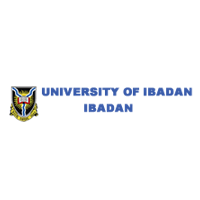Below is a summary of the abstract you submitted. Presenting author(s) is shown in bold.
If any changes need to be made, you can modify the abstract or change the authors.
You can also download a .docx version of this abstract.
If there are any problems, please email Dan at dar78@pitt.edu and he'll take care of them!
This abstract was last modified on March 11, 2021 at 5:23 a.m..

The commencement of SEA-PHAGES program at the University of Ibadan in 2018 marked the beginning of early-career research engagement in bacteriophage biology and computational studies for many participants. Over the years, the Ibadan Bacteriophage Research Team (IBRT) has worked immensely to improve the perception towards bacteriophage studies and prospect of computational biology research. We report the findings of a survey conducted to assess the impact of the program among 25 SEA-PHAGES program trainees. Overall, 88% of the respondents, on a scale of 1-5 graded their prior knowledge of bacteriophage biology and use before joining the program below 3. Ninety-six percent of respondents knew close to nothing about the use of computational genomics in genome analysis before joining the team. After joining the program, 84% of respondents confirmed their proficiency in the use of DNA Master and Artemis genomic tools was above 2, while 80% adjudged their proficiency level in Phamerator, Starterator, HHPred, and NCBI BLAST above 2. Ninety-two percent of respondents have completely annotated at least one bacteriophage sequence since joining the program. Overall, 84% of respondents adjudged their research engagement in bacteriophage and computational studies above average while 44% others confirmed interest in graduate studies in this line of research. The team’s online training structure during the global pandemic was adjudged rewarding by 84% of respondents. We organized a webinar series for the World Phage Week 2020 and 80% of respondents believed such program was essential for undergraduate integration in global phage research efforts. The SEA-PHAGES program led to the attendance of 72% of respondents in at least one bacteriophage related conference/webinar. To date, the IBRT has authored three review articles and presented more than 5 conference abstracts, hence, it was not surprising that 100% of respondents agreed that the SEA-PHAGES collaboration with the University should be intensified.
